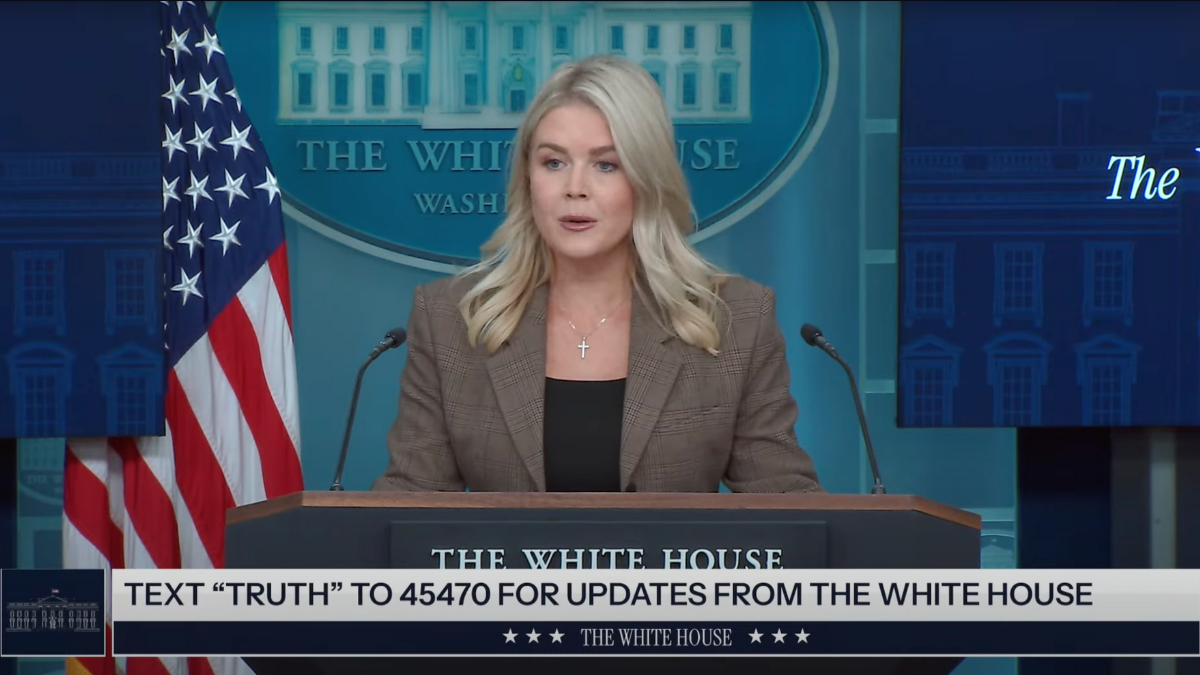The Trump administration appears to be reconsidering its approach to sanctuary jurisdictions, with recent statements from Press Secretary Karoline Leavitt suggesting that proposals to arrest officials in these areas may not be a priority. This shift was highlighted during a White House briefing last week when Leavitt responded to a question regarding the potential arrest of sanctuary mayors, including Evanston, Illinois, Mayor Daniel Biss.
Explainer Trump Administration Reassesses Approach to Sanctuary Officials
Leavitt stated, "Unless they commit a crime, I don’t see them being arrested, but if they are violating federal law, if they are violating state law, then, of course, they should be arrested by state and local law enforcement." This comment follows reports of Biss participating in a protest against Immigration and Customs Enforcement (ICE) in September.
The Trump administration has previously taken a hardline stance against sanctuary cities, which are jurisdictions that limit their cooperation with federal immigration enforcement. Critics argue that such policies undermine federal law and contribute to increased crime, while supporters maintain that they protect vulnerable communities.
In recent months, the administration has ramped up federal enforcement efforts, particularly in cities with sanctuary policies. Since mid-August, federal operations in Washington, D.C. have resulted in thousands of arrests, including individuals associated with gangs such as MS-13. In September, two new operations were launched aimed at apprehending illegal immigrants in Chicago and across Illinois.
According to ICE, more than 210,000 individuals have been apprehended since January 20, with a significant portion being criminal illegal aliens. The administration plans to expand these enforcement efforts into additional cities, despite the backlash from protests and riots that have occurred in response to these actions.
DHS Secretary Kristi Noem emphasized the administration's commitment to enforcing immigration laws, stating, "You will not stop us or slow us down. ICE will continue to enforce the law. And if you lay a hand on a law enforcement officer, you will be prosecuted to the fullest extent of the law."
However, the recent comments from Leavitt indicate a potential shift in strategy. During the early days of the Trump presidency, officials indicated that sanctuary city leaders could face legal repercussions for their policies. In January, Deputy Chief of Staff for Policy Stephen Miller suggested that public officials could be arrested for obstructing federal immigration laws.
In April, President Trump signed an executive order threatening to defund sanctuary jurisdictions, reinforcing the administration's tough stance on immigration enforcement. Attorney General Pam Bondi also warned sanctuary leaders that they could face prosecution and loss of federal funding if they did not comply with federal immigration policies.
Despite these previous assertions, the current administration's approach may be evolving. The Department of Justice has not clarified whether it will pursue legal action against public officials for enforcing sanctuary policies. As federal operations continue, the administration faces the challenge of balancing enforcement with the political realities of sanctuary jurisdictions.
The situation remains fluid, and the Trump administration's next steps will be closely monitored by both supporters and critics of its immigration policies. The outcome of this reassessment could significantly impact the enforcement landscape across the United States.
Why it matters
- The Trump administration's potential shift on sanctuary jurisdictions may alter federal enforcement strategies, impacting local governance and immigration policy.
- Press Secretary Leavitt's comments suggest a less aggressive approach towards sanctuary city officials, indicating a possible reevaluation of previous hardline stances.
- The administration's evolving strategy could affect ongoing federal operations and the political landscape surrounding immigration enforcement.
What’s next
- Monitor for further statements from the Trump administration regarding sanctuary policies and enforcement priorities.
- Watch for potential legal actions or clarifications from the Department of Justice on sanctuary city officials.
- Upcoming federal operations may reveal the administration's commitment to its revised approach to immigration enforcement.
